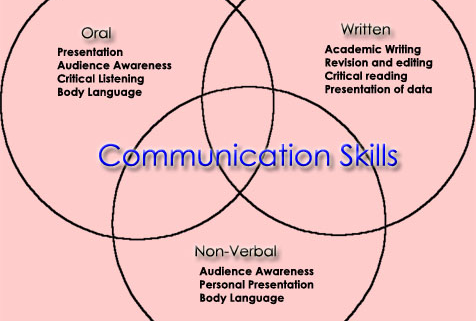Communication Skills
Understanding Communication:
Verbal Communication:
è The importance of clarity, conciseness, and tone in spoken language.
è Tips for effective verbal communication, including active listening and adapting your language to your audience.
Non-Verbal Communication:
è Exploring the significance of body language, facial expressions, and gestures.
è How non-verbal cues can enhance or detract from your message.
Written Communication:
è The importance of written communication skills in the digital age.
è Tips for crafting clear, concise, and impactful written messages in emails, reports, and other mediums.
Improving Communication Skills:
Active Listening:
è Techniques for becoming a better listener and understanding others.
è The role of empathy in active listening and building strong interpersonal connections.
Effective Speaking:
è Overcoming public speaking anxiety.
è Techniques for organizing and delivering a compelling message.
Empathy and Emotional Intelligence:
è The link between empathy, emotional intelligence, and effective communication.
è How understanding and managing emotions contribute to better communication outcomes.
Adaptability:
è The importance of adapting your communication style to different situations and audiences.
è Strategies for effective communication in diverse settings.
Communication in Professional Settings:
Team Communication:
è Tips for fostering open and transparent communication within teams.
è The role of effective communication in collaboration and project success.
Leadership Communication:
è How strong communication skills contribute to effective leadership.
è Strategies for inspiring, motivating, and leading through communication.
Conflict Resolution:
è The role of communication in resolving conflicts and misunderstandings.
è Techniques for approaching difficult conversations and finding common ground.
Continual Improvement:
Feedback:
è The importance of seeking and providing constructive feedback.
è How feedback loops contribute to ongoing improvement in communication skills.
Lifelong Learning:
è Embracing a mindset of continual learning and growth in communication.
è Resources and strategies for staying informed and enhancing communication skills over time.
Conclusion:
In conclusion, mastering the art of communication is an ongoing process that requires self-awareness, practice, and a commitment to improvement. By cultivating effective verbal and non-verbal communication skills, actively listening, and adapting to different contexts, you can elevate your communication prowess and positively impact your personal and professional relationships. Remember, communication is not just about words; it’s about connecting authentically and building bridges that foster understanding and collaboration.


Leave a Reply
Want to join the discussion?Feel free to contribute!